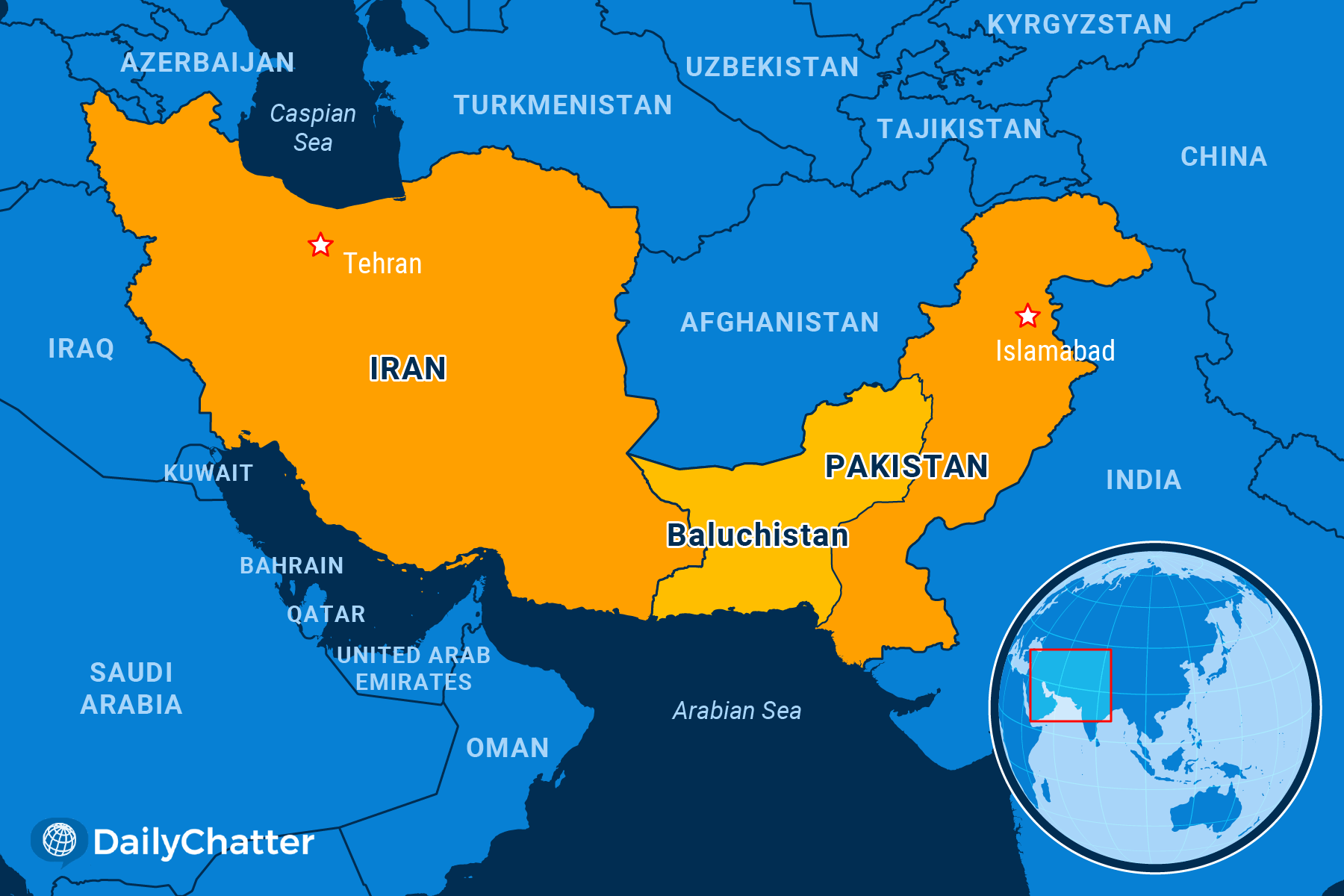The World Briefly
January 19, 2024The Slow Leak
BaluchistanIranPakistan

|
Listen to Today's Edition
|
Pakistan launched retaliatory strikes Thursday on militants in Iran’s Sistan and Baluchistan province, raising fears of a new conflict breaking out in a region already tense due to the war between Israel and Hamas and its reverberations, the Associated Press reported.
Iran said that at least nine people, including three women and four children, were killed in the strikes on its territory. Pakistan, meanwhile, said it had killed “a number of terrorists.”
The Pakistani attacks followed Iranian strikes on Pakistani territory Tuesday that killed two children, according to Pakistani officials. Both sides said they had targeted separatist militant groups: Iran allegedly targeted Jaish al-Adl, which it says bases itself in Pakistan, while Pakistan targeted the Baluchistan Liberation Army and the Baluchistan Liberation Front, allegedly hosted by Iran.
Both countries said they were defending their sovereignty.
For years, these insurgent groups have fought for an independent Baluchistan for ethnic Baluch areas in Iran, Pakistan and Afghanistan, and have targeted Iranian and Pakistani security officials, frustrating both countries.
And while the Pakistan-Iran border has seen occasional outbreaks of violence in recent years, this week’s attacks came amid growing concerns over rising instability in the region following the outbreak of war between Israel and Hamas, which is supported by Iran, the Washington Post said.
Over the past week, the United States has carried out strikes against Iranian-backed Houthi militants in Yemen, who have been attacking ships in the Red Sea. Meanwhile, Iran has attacked targets in Iraq and Syria this week, allegedly to root out terrorists and spies.
Still, the issue between Pakistan and Iran has remained mostly localized. Iran and Pakistan are generally on good terms but both have blamed the insurgencies in the lawless border region as being fueled from abroad. For example, Pakistan has accused Iran of ignoring militants operating in its territory, while Iran has said militants in Pakistan have been receiving Israeli support, while Pakistan looks away.
Meanwhile, analysts said Pakistan can’t afford for such an escalation with its neighbor. Pakistan, already shaky economically, is banking on Chinese plans for a trade corridor via Baluchistan.
Iran, on the other hand, is escalating violence in the region to play to a domestic audience after an Islamic State terror attack in Kerman killed more than 90 people and left Iran’s officials looking weak, said analysts. That is in addition to Israeli attacks on their allies, Hamas and Hezbollah, US attacks on their allies in Yemen, and domestic unrest lingering since last year.
“The government and military have been under immense pressure,” Abdullah Khan from the Pakistan Institute for Conflict and Security Studies think tank in Islamabad told AP. “The public perception of a strong army is not as it used to be, so it had to respond.”
Not already a subscriber?
If you would like to receive DailyChatter directly to your inbox each morning, subscribe below with a free two-week trial.
Support journalism that’s independent, non-partisan, and fair.
If you are a student or faculty with a valid school email, you can sign up for a FREE student subscription or faculty subscription.
Questions? Write to us at hello@dailychatter.com.

